Located 15 km south of Rennes, DGA-MI is the most important technical and experimental center of the French MoD. More than 2 000 people, mainly engineers, work there. The activities of the center concern Electronics, telecommunications, detection, navigation systems and cybersecurity. Three major experimental facilities will be presented (see below): BEDYRA, STRADI and CHEOPS.
The visit is limited to 45 persons.
A copy of your passport is needed when registering to the visit as the access inside the site is subject to the authorization of the French MoD. Visitors must be citizens of a NATO country and the deadline is fixed to October 1st.
DGA-MI, Thalès Etrelles, Lorient: The buses leave at 8:30 AM
Meeting point at 8:15 AM in front of the Railway Station (North side)
Return before lunch for DGA-Mi and Thalès.
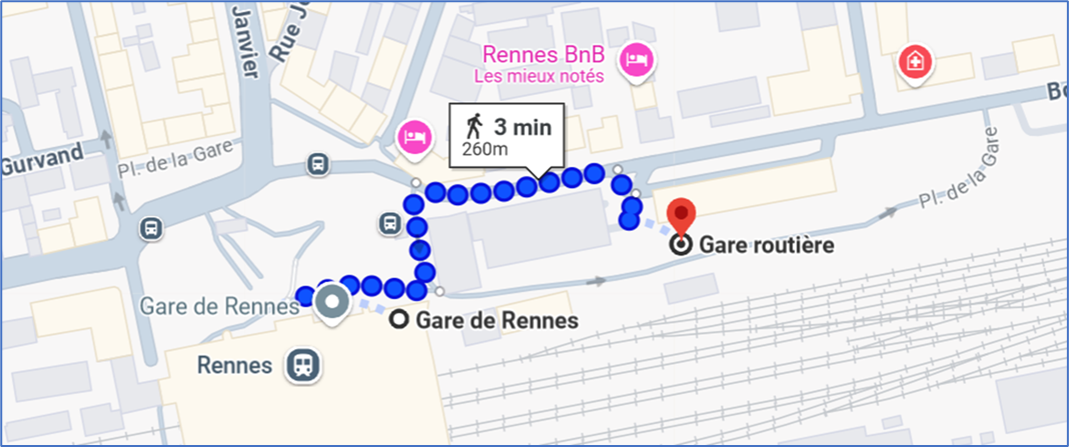
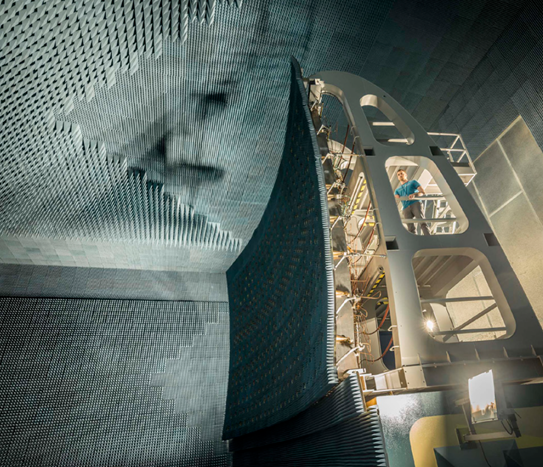
BEDYRA is a hardware in the loop simulator. It combines digital simulation, radio frequency generators and a three-axis table, in order to reproduce the mechanical and electromagnetic environment in which radio-frequency seekers and airborne tracking radars might be involved.
The tested equipment is set up on a three-axis table, which simulates the platform movements. It is placed in front of an array of emitters representing the electromagnetic scene and the whole is located in a shielded anechoic chamber. The bench commands are computed in real time, which allows closed loop as well as open loop functionality.
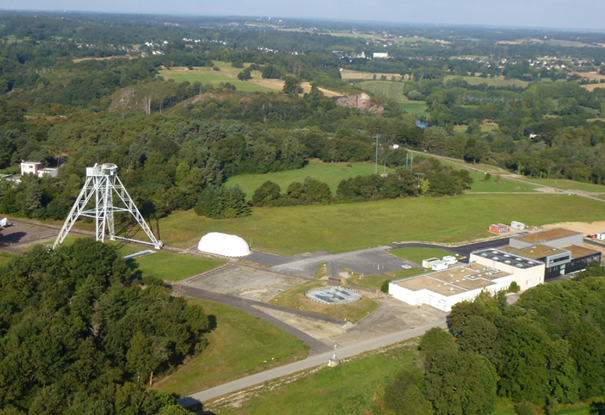
STRADI is an outdoor facility used for Radar Cross Section measurements on any kind of targets such as armored vehicle, helicopters or naval ship superstructures. It can also be used to perform antenna diagram measurements, such as passive antennas or electronic sweep array antennas.
The whole structure is composed of a circular turntable, with a diameter of 17 meters and a payload of 70 tons, an 88 m high pylon, located at 260 m from the turntable center and a mobile gantry tower with a laboratory located 30 meters above the ground, moving along a 200 m long railway.
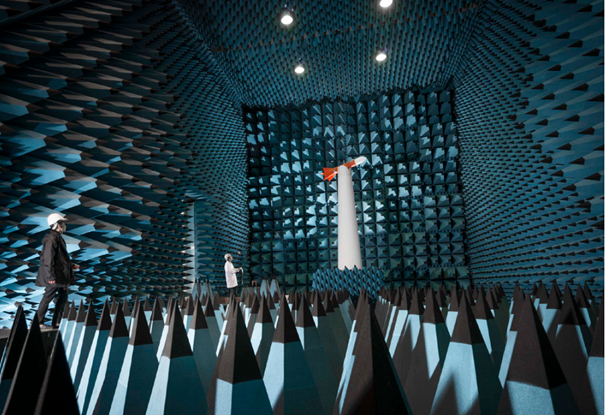
CHEOPS is an anechoic chamber dedicated to Radar Cross Section measurements of missiles, UAVs and to antenna patterns evaluation. Measurements performed in CHEOPS are mainly use, in the field of electronic warfare, for: evaluation of new radar stealth concepts, RCS and antennas characterization of national weapon systems, radar and counter measures specifications, radar signatures digital simulation validation.
We propose the visit of the M²ARS (Manufacturing Measurement Analysis of Radiating Systems) Platform.
The visit is limited to 20 persons.
Meeting point at 9:30 AM
Access via public transportation (2 main options below)
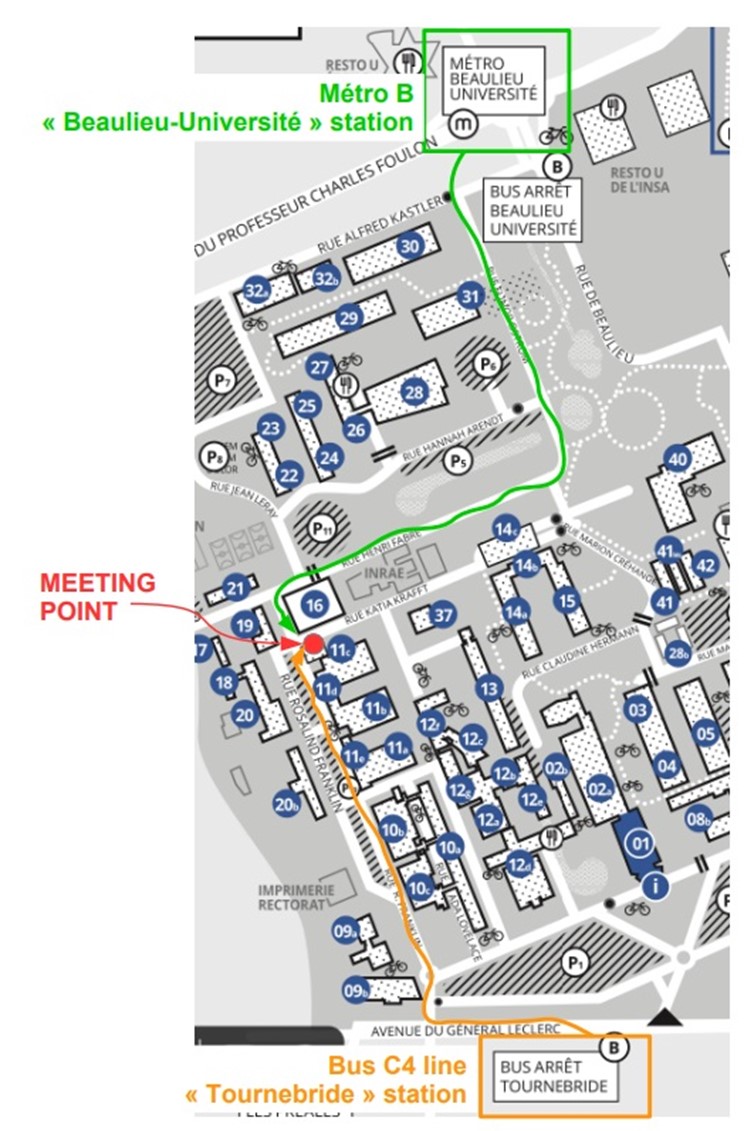
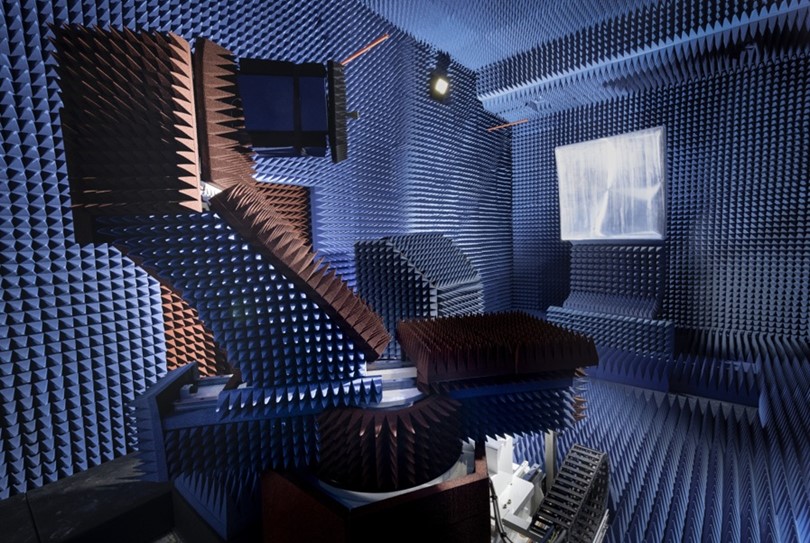
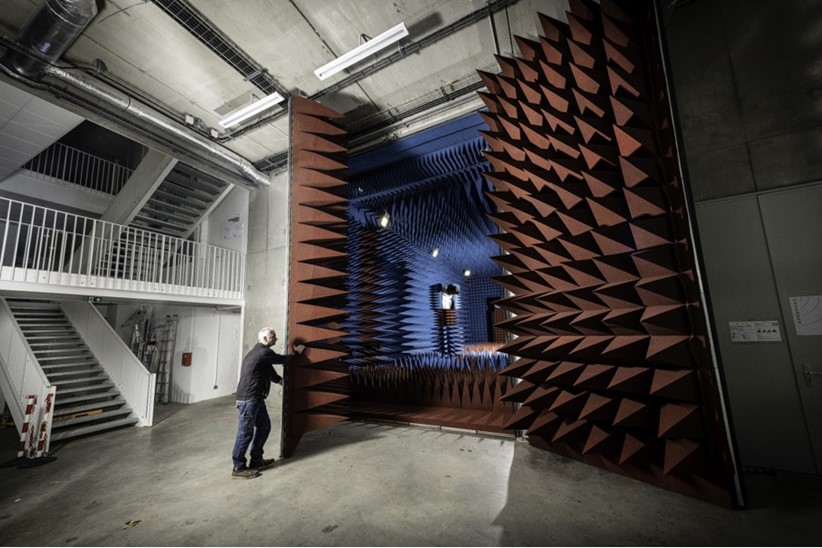
The platform M²ARS is a scientific tool enabling the characterization and prototyping operations that are essential to the IETR's research in development and use of radiating systems.
M²ARS is positioned as an international platform, providing its institutional and private partners with a unique set of technical platforms and skills enabling:
The visit is limited to 45 persons.
A copy of the passport is needed when registering to the visit as the access inside the site is subject to the authorization of the Thales security office. Visitors must be citizens of a NATO country and the deadline is fixed to October 8th.
DGA-MI, Thalès Etrelles, Lorient: The buses leave at 8:30 AM
Meeting point at 8:15 AM in front of the Railway Station (North side).
Return before lunch for DGA-Mi and Thalès.

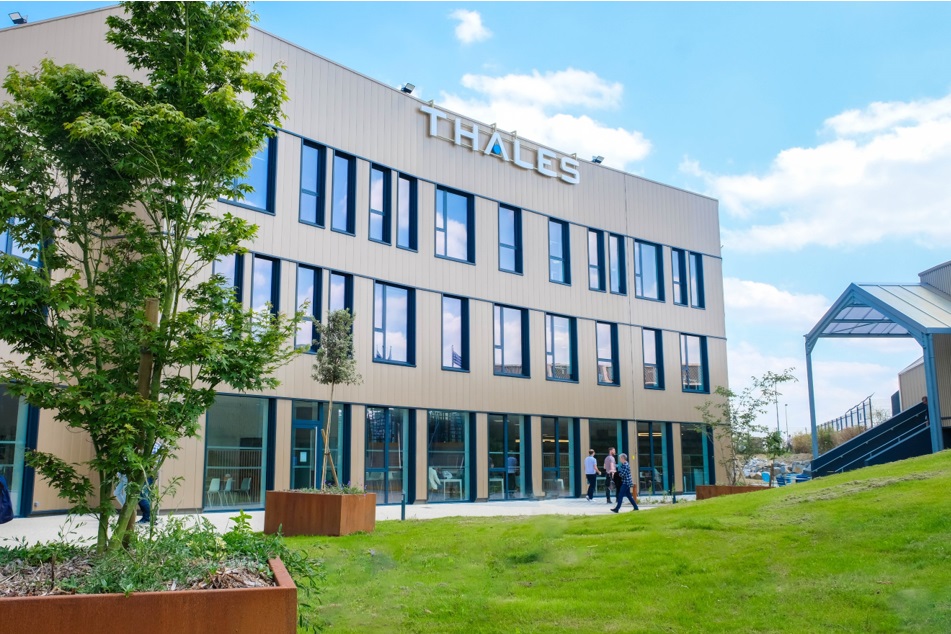
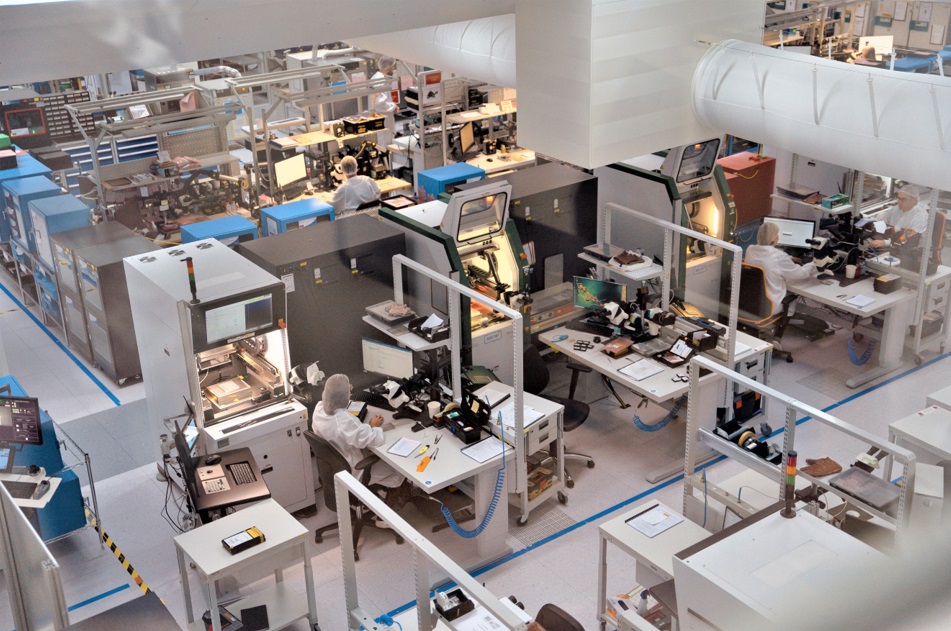
The Thales site at Etrelles (40 km east of Rennes) is mainly dedicated to the Group's defense and security activities, notably microelectronics for the RAFALE fighter jet and military radar and aeronautics activities.
Around 1,000 people work there every day.
The site is a center of excellence in microelectronics, bringing together development, production, integration, and testing capabilities across a 15,000 m² area, including 10,000 m² dedicated to production.
Thales Etrelles has two major areas of expertise:
Those visits are divided into two groups (Maximum of 10 persons in Group 1 and 30 in Group 2).
Transportation and tickets for the museum are included but lunch is not.
DGA-MI, Thalès Etrelles, Lorient: The buses leave at 8:30 AM
Meeting point at 8:15 AM in front of the Railway Station (North side)
Return before lunch for DGA-Mi and Thalès, around 6 PM for Lorient
For Lorient visit it is still time to register
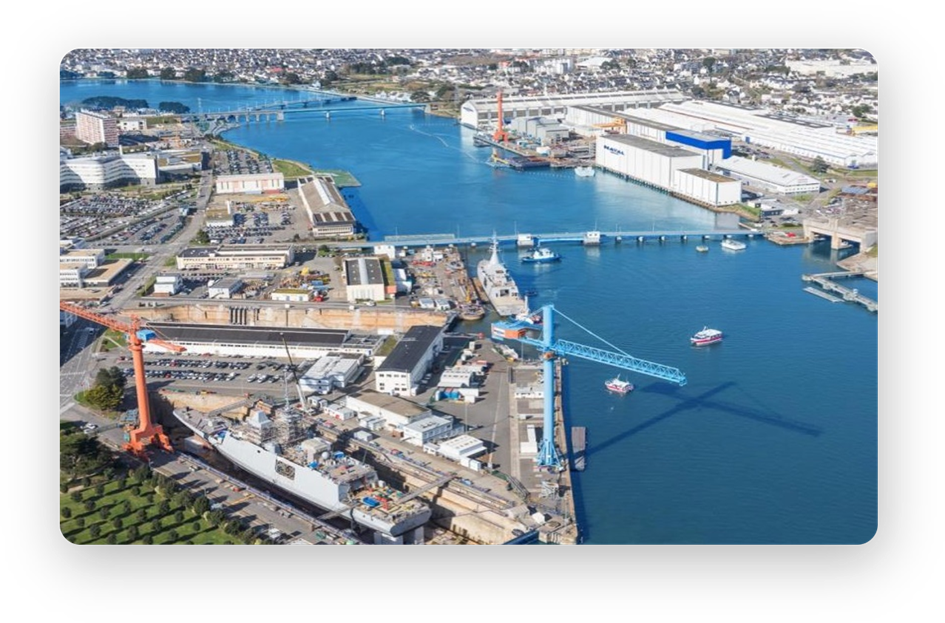
Naval Group Lorient is the Naval Group nerve centre for design, construction and integration of surface ships. It is a historical site in the cities of Lorient and Lanester. The Naval Group site in Lorient has significant industrial infrastructure on 47 ha and a direct workforce of more than 2500 employees, which makes it possible to meet the technical and technological challenges of the military ships.
The visit of the shipyard will focus mainly on the Panoramic Sensors and intelligence Module (PSIM) through the virtual reality room could include the visit of a ship according to availability.
The visit is limited to French citizen, only up to 10 participants.

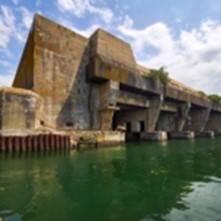
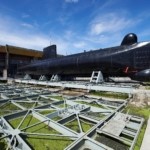
Block K3: Journey through the heart of the bunkers
Built during the Second World War, between 1941 and 1943, by the Germans, the former Kéroman submarine base is the largest on the Atlantic Wall. Located south of the city of Lorient, it extends over an area of 26 hectares and has a sheltered capacity of around thirty submarines.
Flora submarine and its museum: Interactive museum and on-board tour
In a cell of the former submarine base in Lorient, discover an exhibition on life on board, the operation of these mysterious military boats and end with a visit to the Flore-S645 submarine